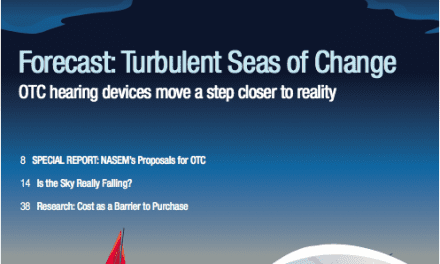The American Speech Language Hearing Association (ASHA), Academy of Doctors of Audiology (ADA), and International Hearing Society (IHS) have filed a joint letter on August 31 to the US Food and Drug Administration (FDA) urging the agency to address concerns with hearing aids being sold as Personal Sound Amplification Products (PSAPs).
According to ASHA, the three organizations stated their belief to FDA that many companies are marketing hearing aids directly to consumers as “personal sound amplifiers.” ASHA said that, in at least one case, different sellers are marketing the same product (ie, hearing aids) differently—in some instances as hearing aids and in others as PSAPs. The letter—which specifically mentions Neutronic Ear, RCA Symphonix Personal Sound Amplifier, Lee Majors Bionic Hearing Aid, and the TV Ears Sports Amplifier—urges the FDA to investigate products sold by retailers to determine whether they are violating FDA disclosure regulations and, if appropriate, to send warning letters instructing violating parties to cease and desist marketing and/or distributing these products for not complying with FDA requirements.
FDA defines a hearing aid as a wearable sound-amplifying device intended to compensate for impaired hearing. As such, hearing aids are subject to different types of pre-market review requirements. A PSAP, on the other hand, is defined by the FDA guidelines as a wearable electronic product not intended to compensate for impaired hearing. It is, according to the FDA, designed to be used by non-hearing-impaired consumers to amplify sounds related to various "recreational activities" (eg, hunting and eavesdropping). PSAPs are not subject to FDA hearing aid device regulations.
MarkeTrak VIII suggests that approximately 1.5 million people with hearing impairment use either direct-mail hearing aids or PSAPs to compensate for their hearing loss. The Hearing Review has published several articles regarding PSAPs, with the most recent being a historical perspective on PSAPs and alternative delivery channels by Jerry Northern, PhD, in the May 2012 HR.
Source: ASHA and HR




